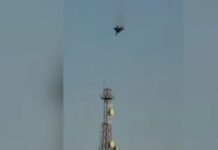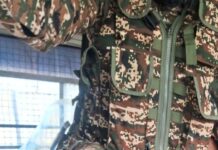New Delhi (NVI): The World Bank has announced that it is making available an initial package of $12 billion to members countries who are grappling with the spread of coronavirus, in order to help them cope up with the health and economic impacts of the global outbreak.
The financial support from the global body came in as COVID-19 reaches more than 60 countries. More than 3,000 people have died from infectious disease so far and over 93,000 are infected.
The financing is designed to help member countries take effective action to respond to and, where possible, lessen the tragic impacts posed by the COVID-19 (coronavirus), the World Bank said in a statement yesterday.
“Through this new fast track package, the World Bank Group will help developing countries strengthen health systems, including better access to health services to safeguard people from the epidemic, strengthen disease surveillance, bolster public health interventions, and work with the private sector to reduce the impact on economies,” it said.
The virus outbreak has snowballed into a global crisis while affecting markets as well as the tourism sector worldwide.
The World Bank financial package, with financing drawn from across IDA, IBRD and IFC, will be globally coordinated to support country-based responses.
The COVID-19 support package will make available initial crisis resources of up to $12 billion in financing — USD 8 billion of which is new — on a fast track basis, World Bank said.
This comprises up to USD 2.7 billion new financing from IBRD; USD 1.3 billion from IDA, complemented by reprioritization of USD 2 billion of the Bank’s existing portfolio; and USD 6 billion from IFC, including USD 2 billion from existing trade facilities. It will also include policy advice and technical assistance drawing on global expertise and country-level knowledge, it added.
“We are working to provide a fast, flexible response based on developing country needs in dealing with the spread of COVID-19,” World Bank Group President David Malpass said.
The financial package will provide grants and low-interest loans from IDA for low income countries and loans from IBRD for middle-income countries, using all of the Bank’s operational instruments with processing accelerated on a fast track basis.
Apsrt from that, the World Bank Group’s private sector arm International Finance Corporation will provide its clients with the necessary support to continue operating and to sustain jobs.
The jobs of a number of people, especially in tourism sector is under threat due to the effect.
The organisation has further stated that it’s support will cover a range of interventions to strengthen health services and primary health care, bolster disease monitoring and reporting, train front line health workers, encourage community engagement to maintain public trust, and improve access to treatment for the poorest patients.
The Bank will also provide policy and technical advice to ensure countries can access global expertise.
International Finance Corporation (IFC) will work with commercial bank clients to expand trade finance and working capital lines. It will also directly support its corporate clients — with a focus on strategic sectors including medical equipment and pharmaceuticals — to sustain supply chains and limit downside risks.
The World Bank also notes that these solutions will leverage the lessons learned from similar events in the past with a goal to minimize the negative economic and social impacts of COVID-19 globally.
Countries face different levels of risk and vulnerability to COVID-19, and will require different levels of support. The Bank Group support will prioritize the poorest countries and those at high risk with low capacity. As the spread of COVID-19 and its impact continues to evolve, the World Bank Group will adapt its approach and resources as needed.
To address the global crisis at multiple levels, the organisation is actively engaged with international institutions and country authorities to help coordinate the global response.








